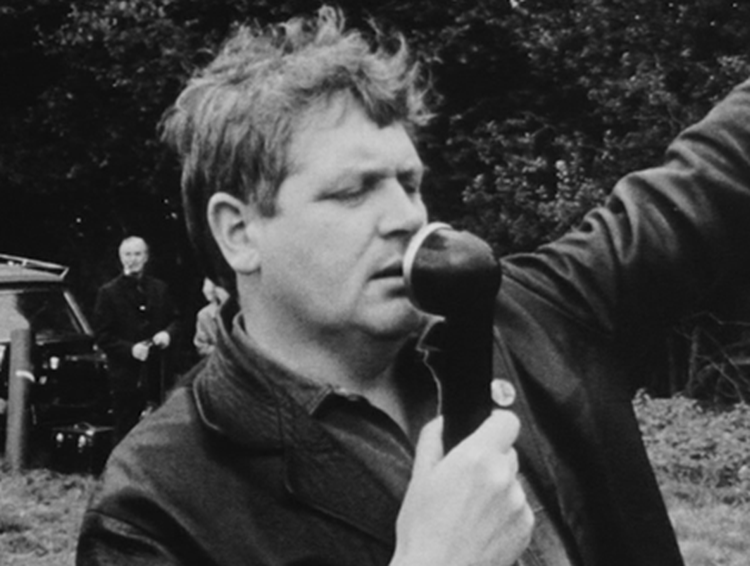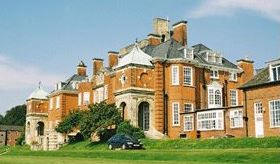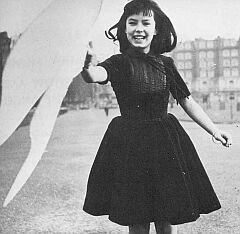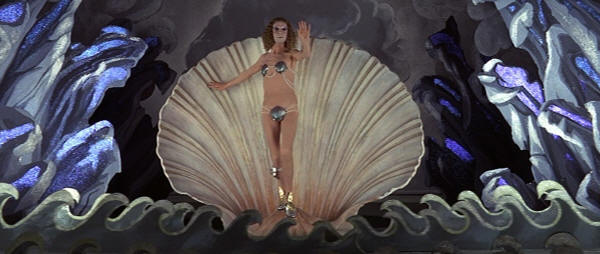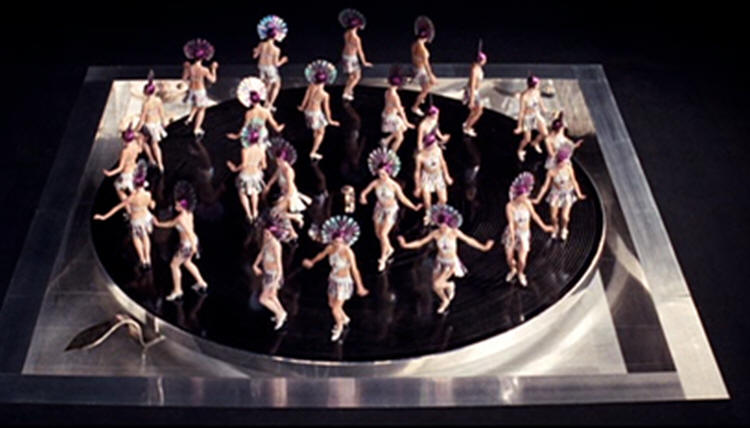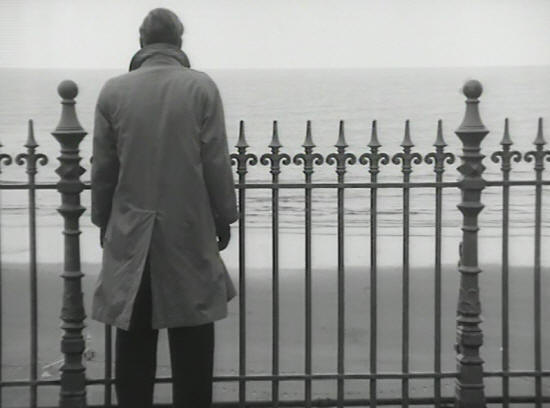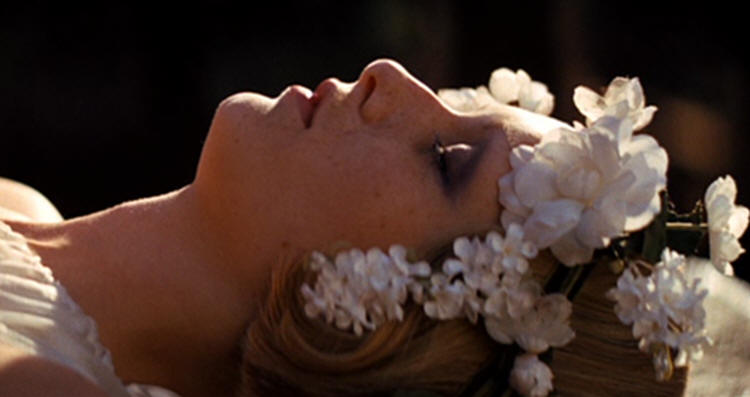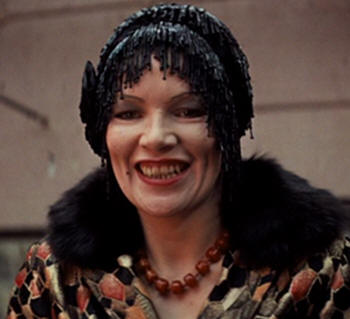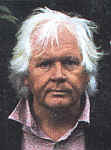|
Biographical outline The major works
Ken Russell is responsible for some of the best films and television of the twentieth century. Some of these were stunningly original and at least one scene, in Women in Love, is a milestone in film history. Another scene, from The Devils, would have been equally groundbreaking had Warner Bros not censored it. His top ten films compare with any other director in the industry (image of Ken directing Isadora from Russell at Work directed by Ian Keill, 1966). Fellini called him the British Fellini and Ken has said his visual films would be more appreciated in Britain if his name was Antonioni. The cliche is that Ken started off good but went over the top. No-one would say Fellini was good with La Strada or lost it with Roma, or Godard was good with Breathless but lost it with Weekend. Among the great works are The Devils, Women in Love, The Music Lovers, Mahler, Savage Messiah, and on television Elgar and Song of Summer. Works that have moments of sheer genius include Tommy, Altered States, Crimes of Passion, Aria, Salome´s Last Dance, the amateur film Amelia and the Angel and the opera Mefistofeles. Minor works, but still of interest, include French Dressing, Gothic, Whore, The Rainbow and on television Clouds of Glory, Lady Chatterley, A British Picture, Elgar 2 and the pop video Nikita. Cult films, loved by some and hated by others, include Lisztomania, The Lair of the White Worm and The Fall of the Louse of Usher. The background His parents were Henry Russell and Ethel Smith and his brother was Raymond. He went to Pangbourne Naval College in Berkshire. "Henry Kenneth Alfred Russell was born in Southampton on July 3 1927, the elder of two sons of a shoe-shop owner. He was educated formally at a series of minor private schools, but from an early age privately developed a love for the moving image. His mother took him regularly to the cinema, and by the age of eight he was mounting his own screenings of Expressionist classics in the garage. Cinema provided a refuge. His schooling was unhappy, as was his parents’ marriage, and his mother suffered from mental illness" (Obituary, The Telegraph,28 Nov 2011, click here). His parents were Henry Russell and Ethel Smith and his brother was Raymond. He went to Pangbourne Naval College in Berkshire.
He married Shirley Kingdon in 1956 and divorced in 1978. They had five children Alex, James, Toby, Xavier and Victoria. He married Vivian Jolly in 1983 and divorced in 1991. They had two children Molly and Rupert. He married Hetty Baynes in 1992 and divorced in 1999 with one son Rex. Ken then married to Elise Tribble (2001). After some strokes Ken passed away peacefully in his sleep in November 2011. Ken Russell is an intelligent literate film director who is always interesting and will always confuse and surprise. In the beginning of his career he was very shy and introvert. He later became very extravagant and wild, another way of protecting his inner thoughts. Ken's background includes
both the merchant navy and dancing. He moved to
photography then made some amateur films which he
submitted to the BBC´s Monitor programme.
Ken gained his reputation in television when he took over from John Schlesinger on BBC television's Monitor series. Under Huw Wheldon´s supervision he created low budget television documentaries. With little directing experience he turned out a stream of the most original and most commercially successful television programmes ever made. For example on the Bartok film he had no budget for extra actors so he used mirrors to create the effect of many musicians where there is clearly only one. The duality of the obvious (only one musician) and the effect (many) is part of Russell's power. He turned to films. His wild visual imagery and his ability to inspire actors created some of the finest films made.
He has achieved commercial success and had a brief period in America. His love of the kitsch- nuns, snakes, phallic symbols and marching Nazis- means his films were initially controversial, and his later films lost a mainstream audience. Recently he has struggled to get a budget "its easy getting two thirds of the cash, its always the final third that's the problem". Ken earns virtually no money from royalties. His income comes from his fees as director. There are a couple of bad Ken Russell films (Mindbender) and I give them bad reviews, but I quote Ken Russell on Tchaikovsky "No I love him, but my love isn't blind". Glenda Jackson says "I just wish he would find a really good scriptwriter he could respect because he needs to be dragged by someone with a talent as large as his own, then he could get out of this fearful rut". Ken Russell loves films. In the book Russell's films include very Catholic themes, though mainly in an irreligious or sacrilegious way, as well as the theme of sacrifice: Fenby sacrificing himself for Delius, Dreyfus being sacrificed for the honour of the army and the French state in Prisoners of Honor.
Sexuality is also a major theme in Ken Russell's films and treated liberally. From the (almost) incestuous (Savage Messiah, Clouds of Glory) to homosexual (The Music Lovers, Women in Love) and lesbian (The Rainbow) to prostitution (Tommy, Crimes of Passion, Whore) to frustration (Crimes of Passion, The Devils, Lady Chatterley). There are few happy marriages in his films. People and directing Ken Russell, in common with many directors, builds up a group of people he calls on for his films. In particular Oliver Reed and Glenda Jackson will always be associated with him. Glenda Jackson had virtually no acting experience, Oliver Reed was regarded as a hack. Russell brought out their talents. Ken seemingly has no problems getting inexperienced actors to turn in good performances e.g. Twiggy in The Boy Friend, Gable in Delius. But actors and Ken can't explain, and even contradict, this ability.
Glenda Jackson says "I like him
as a person and as a director he's like all really good
directors- he leaves you alone. Bad directors just tell you what
you want; good directors always wait to be surprised. The really
good ones, more instinctively than deliberately, create an
atmosphere, a climate in which you work well, that helps you
produce ideas. He doesn't know anything about acting. He'll
spend hours getting the set right or screaming abuse at people
because a costume isn't actually correct in every fine detail,
and then he'll leave you to play a scene entirely on your own.
He can't do anything to help a bad actor" (from Nathan's
Russell himself says "I don't
talk to my actors too much. I explain as much as I can to them
but life isn't to do with explaining or manipulating" (from Ken married Shirley Kingdon in 1956. Shirley worked on costumes for Ken. They divorced in 1978 and Shirley died in 2002. Their children were Alex (who worked on Ken's Gorsewood films), James, Toby, Xavier (who worked as editor on some of Ken's later work) and Victoria (like her mother a costume designer and she has worked with Ken). Ken married Vivian Jolly, who was an assistant on Altered States, in 1983. She provided the translation into English of Salome's Last Dance. They divorced in 1991 and their children were Molly and Rupert. Ken married actress Hetty Baynes in 1992 and she appeared in some of his television work. They divorced in 1999 with one son Rex. In 2001 Ken married Elise (Lisi) Tribble and they were happy making films together until his death. The title of this page, Ken the Kid, comes from Russell's excellent autobiography A British Picture.
|
